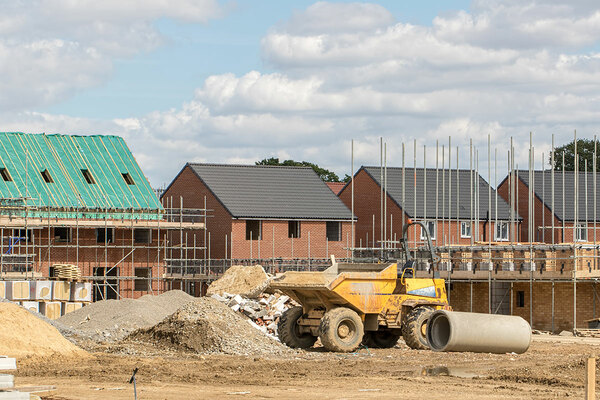You are viewing 1 of your 1 free articles
Around 50 organisations currently applying to become for-profit providers, says regulator
Stock owned by for-profit social housing providers is expected to soar next year as more than 50 businesses submit applications to register as social landlords, the English regulator has said.

Speaking at the Social Housing Finance Conference, Will Perry, director of strategy at the Regulator of Social Housing, said the number of for-profit providers is “clearly a growth area”.
“We currently have 53 organisations on the register and we have got pretty much the same number of applications in the pipeline,” he added.
Mr Perry said that in 2020 there were just under 10,000 units owned by for-profit providers, up from about 5,000 in 2019. “We may be getting close to 20,000 in the year just gone,” he suggested.
The social housing sector has seen a number of for-profit providers being formed in recent years; high-profile examples include asset management giant Legal & General’s L&G Affordable Homes and Blackstone-backed Sage Housing. Both providers have begun producing hundreds of homes through Section 106 and direct delivery.
Participants in the conference session agreed that for-profit providers can be useful in bringing private capital into the sector to help deliver on development targets.
John Goodey, chief financial officer at Sage, who was also speaking on the panel, said Sage expects to have around 17,000 units in its portfolio by the end of this year, increasing to 20,000 by the end of 2022.
Also speaking was Catherine Raynsford, director of stakeholder and investment management at Hyde, which became the first existing housing association to begin setting up its own for-profit in June last year.
Ms Raynsford said that Hyde has now found an institutional partner for its venture into the for-profit space.
She said: “The for-profit gives us control over the tenure mix that will be effectively be delivered and owned by that vehicle in the long term. We expect that to be predominantly a rented mix, with a good bit of shared ownership.”
Sarah Smith, chief financial officer at Optivo, said she expects to see more housing associations follow in Hyde’s footsteps.
“I know that lots of associations are exploring this route and I think it’s really because we are under a lot of pressure, financial constraint, whether that’s finding ways of investing in fire safety and net zero carbon. That for us at the moment is a massive unknown.
“Finding other routes to develop new homes that are needed I think is really important. So a for-profit for me is very much about an innovative solution to the challenges we face.”
However, Mr Perry said that the majority of for-profit registrations are either developer subsidiaries or equity-backed organisations.
Sign up for our regulation and legal newsletter
Already have an account? Click here to manage your newsletters












